
Salvatore Giuliano was an Italian bandit, who rose to prominence in the disorder that followed the Allied invasion of Sicily in 1943. In September of that year, Giuliano became an outlaw after shooting and killing a police officer who tried to arrest him for black market food smuggling, at a time when 70 percent of Sicily's food supply was provided by the black market. He maintained a band of subordinates for most of his career. He was a flamboyant, high-profile criminal, attacking the police at least as often as they sought him. In addition, he was a local power-broker in Sicilian politics between 1945 and 1948, including his role as a nominal colonel for the Movement for the Independence of Sicily. He and his band were held legally responsible for the Portella della Ginestra massacre, though there is some doubt about their role in the numerous deaths which occurred.

Mario Scelba was an Italian politician who served as the 33rd prime minister of Italy from February 1954 to July 1955. A founder of the Christian Democracy, Scelba was one of the longest-serving Minister of the Interior in the history of the republic, having served at the Viminale Palace in three distinct terms from 1947 to 1962. A fervent pro-Europeanist, he was also President of the European Parliament from March 1969 to March 1971.

The Sicilian is a novel by American author Mario Puzo. Published in 1984 by Random House Publishing Group (ISBN 0-671-43564-7), it is based on the life of Sicilian bandit Salvatore Giuliano. It is set in the same universe as Puzo's most famous work, The Godfather (1969), and contains characters from The Godfather. It is regarded as The Godfather's literary sequel and is the second book in The Godfather novel series. It was adapted into a film in 1987, though all Godfather references were removed for copyright reasons in the film adaptation.
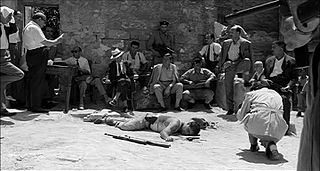
Salvatore Giuliano is a 1962 Italian drama film directed by Francesco Rosi. Using techniques of the documentary film, it recounts the criminal career of famous Sicilian bandit Salvatore Giuliano between 1943 and 1950, his death. In 2008, the film was included in the Italian Ministry of Cultural Heritage's 100 Italian films to be saved, a list of 100 films that "have changed the collective memory of the country between 1942 and 1978."
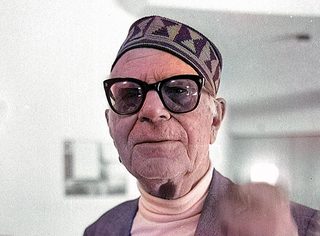
Ignazio Buttitta was an Italian poet who wrote predominantly in Sicilian.
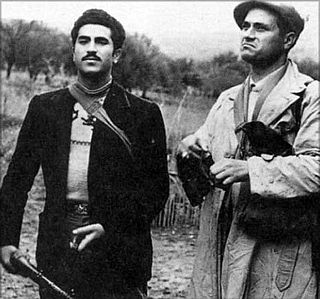
Gaspare Pisciotta was a companion of the Sicilian bandit Salvatore Giuliano, and considered to be the co-leader of his outlaw band. He is also the Judas in Giuliano's legend as he betrayed Giuliano and killed him.

Bernardo Mattarella was an Italian politician for the Christian Democrat party. He was a cabinet minister of Italy several times, becoming one of the most important politicians of his generation.

Lorenzo Ferrero is an Italian composer, librettist, author, and book editor. He started composing at an early age and has written over a hundred compositions thus far, including twelve operas, three ballets, and numerous orchestral, chamber music, solo instrumental, and vocal works. His musical idiom is characterized by eclecticism, stylistic versatility, and a neo-tonal language.

Girolamo Li Causi was an Italian politician and a leader of the Italian Communist Party who was a prominent figure in the struggle for land reform and against the Mafia in Sicily. He labelled large estates Sicily's central problem.
Luciano Damiani was an Italian stage and costume designer, who worked both for theatre and opera productions.

The Portella della Ginestra massacre refers to the killing of 11 people and 27 wounded during May Day celebrations in Sicily on 1 May 1947, in the municipality of Piana degli Albanesi. Those held responsible were the bandit and separatist leader Salvatore Giuliano and his gang, although their motives and intentions are still a matter of controversy.
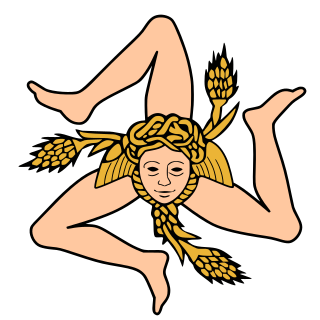
The Movement for the Independence of Sicily was a separatist Sicilian political party originally active in Sicily from 1943 to 1951. Its best electoral result was in 1947, when it won 8.8% of the votes in the Sicilian regional election and had nine regional deputies elected.

Pietro Scaglione was an Italian magistrate and Chief Prosecutor of Palermo, Sicily. He was killed by the Mafia in 1971.
Francesco Cuccia, also known as Don Ciccio, was a member of the Sicilian Mafia and one-time mayor of Piana dei Greci. He is best known as the Mafia boss who triggered Benito Mussolini’s war on the Mafia, after humiliating him while visiting Piana dei Greci in 1924. He was described by the writer Norman Lewis as a Mafia potentate with an inflamed sense of his own importance. The Sicilian writer Giuseppe Passarello called him "Cuccia il sanguinario".
Mare nostro is a comic opera in two acts composed by Lorenzo Ferrero to an Italian-language libretto by Marco Ravasini, loosely based on Vittorio Alfieri's 1804 comedy L'antidoto . The work was completed in 1985 and first performed at the Teatro Comunale, Alessandria on 11 September 1985.
Francesco Renda was an Italian Marxist historian, Communist politician and a university professor.
Charlotte Corday is an opera in three acts by Lorenzo Ferrero to an Italian-language libretto by Giuseppe Di Leva, written on commission from the Teatro dell'Opera di Roma for the 200th anniversary of the French Revolution which was commemorated in 1989.
Marilyn: Scenes from the '50s in two acts, is an opera by Lorenzo Ferrero set to a bilingual libretto by Floriana Bossi and the composer. The text consists of a collection of fragments taken from original political, social and cultural documents and has two different linguistic levels: English for the sung parts, and the language of the country in which the performance takes place for the spoken parts.
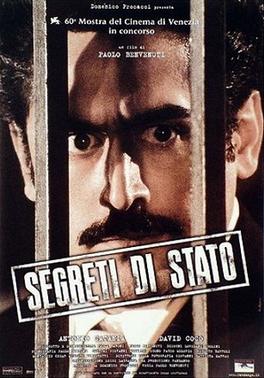
Secret File is a 2003 Italian historical drama film written and directed by Paolo Benvenuti.
Giuseppe Casarrubea was an Italian historian and author.













